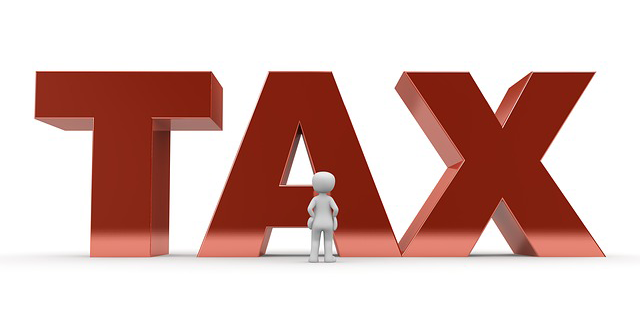Ecommerce Tax Tips for a Happy Holiday Season

:: By Matthew Walsh, Sovos Compliance ::
For most retailers, November and December represent the most wonderful time of the year, with up to 30 percent of annual sales coming during the holiday season according to the National Retail Federation. Tax errors, however, can turn the season bleak if e-retailers are caught unprepared, resulting in slow transactions, customer frustration and unexpected liabilities.
As ecommerce companies prepare for an influx of traffic and transactions, sales tax compliance is increasingly important. The holiday season is the most inconvenient time to find out the limitations of your technical systems, field customer complaints about taxability or be in the news for charging incorrect taxes. Here are seven key questions that e-retailers should ask themselves now to ensure there are no surprises come Black Friday and Cyber Monday.

1. Am I registered in every state where I have nexus (a legal term for "operations")?
While the regulations are different for every jurisdiction, a good rule of thumb is that anywhere you have tangible assets, including a physical location, inventory or employees, you should be collecting sales tax. This can be especially difficult to determine for retailers using a third-party platform like Amazon, which may move your inventory around various warehouses. One common mistake e-retailers make is entering into partnership or reseller agreements without fully understanding their tax implications. Distribution, affiliate and marketing relationships can certainly provide avenues to reach new customers and more efficiently serve current customers, but they also often create additional tax collection and remittance obligations. The holiday season is not the time to determine that your tax nexus is larger than you thought.
2. Am I 100% certain that I am charging tax at the correct state and local rates for all of my locations? Do I have the systems in place to monitor and make the necessary adjustments as these rates change?
Tax calculation is a complex process, with taxes being imposed at state, county, city and district levels. Tracking all the tax rates for these thousands of jurisdictions manually can be quite a challenge. Determining all the rates that apply at a particular location can also be difficult. What processes do you have in place to ensure the rates you charge and jurisdictional assignments are accurate? Ultimately, inaccurate sales tax calculations can result in lost profits, as you may owe taxes out-of-pocket, or could result in negative news/reviews if customers are unhappy, which is especially risky during the biggest shopping season of the year.
3. If using multiple platforms to sell (e.g., your own website, affiliates, Amazon, etc.), are all of those systems providing the same results/tax determinations?
It is not uncommon for an operation to sell across multiple platforms or outlets - physical stores, a company run website and through various marketplaces such as Amazon or Etsy, for example. The use of multiple platforms can certainly generate greater sales; however this also increases the risk that you are not applying the correct rules and rates. If you do sell on multiple platforms, what is your process to ensure the rates and rules applied to your sales across all your systems are correct? Do you have procedures in place to ensure all those systems are updated regularly and accurately?
4. Do I have a complete grasp on all the special taxability rules that may apply to the items and services that I sell - in all of the places that I sell them?
Some states impose tax on shipping charges while others do not. Some calculate tax based on the seller's location (origin); some do so based on the buyer's address (destination). Many states have tax exemptions or premiums depending on the items being sold. Clothing is a prime example. Clothing suitable for everyday wear is fully exempt from sales tax in Minnesota, New Jersey, Pennsylvania and Vermont. It's also exempt in Massachusetts, but only up to the first $175, and Rhode Island, but only up to the first $250. There is also a special exemption for clothing in New York that always applies to state tax, but that's not always applicable to local tax. Other states have luxury taxes on items above a certain value. Such tax rules require a detailed understanding of what qualifies for exemption - sporting goods and fur, for example, are often not exempt from tax breaks.
5. Is my accounting system capable of quickly processing the increased transactional volume that takes place during the holidays?
It's critical that any sales tax determination software you use is able to accurately and efficiently handle the expected volume wherever your customers are buying: online, in a store or over the phone. Otherwise, you run the risk of frustrating already harried customers and losing sales.
6. What contingency mechanisms do I have in place that will allow transactions to process (and tax to be calculated) should an unexpected system failure occur?
Having a backup plan in place, such as redundant servers or a failsafe mechanism that applies at least standard and local tax rates, allows you to remain confident that business will run smoothly throughout the holiday season.
7. Will I be able to properly issue refunds and credits of taxes collected?
The holidays aren't over once all of the gifts are unwrapped. Being able to accurately issue refunds - and recalculate your taxes owed - requires accurate and detailed record-keeping. It also necessitates thorough knowledge of the proper tax treatment of merchandise returns, exchanges, restocking fees and similar transactions across the country.
Unfortunately, system errors during the holiday season are not uncommon, with retailers making the news yearly for outages. Last year, issues hit retailers large - NeimanMarcus.com - and small - Food52. By planning ahead, testing compliance and systems, and having backup plans in place, retailers will be well-poised for a very merry holiday season. About the Author
With more than 17 years of experience in tax compliance, Matthew Walsh oversees solutions for global indirect tax law compliance at Sovos.







